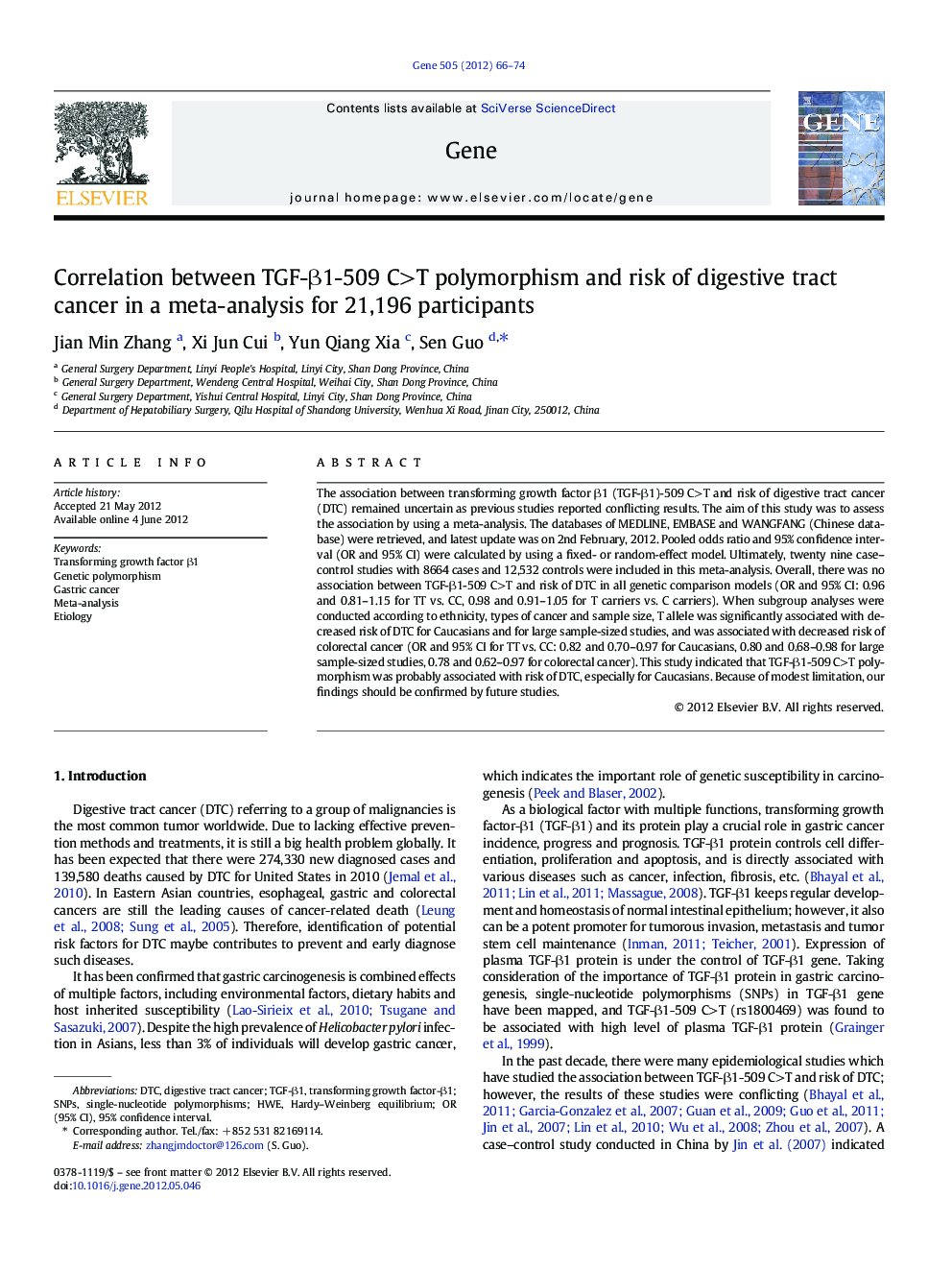| Article ID | Journal | Published Year | Pages | File Type |
|---|---|---|---|---|
| 2817628 | Gene | 2012 | 9 Pages |
The association between transforming growth factor β1 (TGF-β1)-509 C>T and risk of digestive tract cancer (DTC) remained uncertain as previous studies reported conflicting results. The aim of this study was to assess the association by using a meta-analysis. The databases of MEDLINE, EMBASE and WANGFANG (Chinese database) were retrieved, and latest update was on 2nd February, 2012. Pooled odds ratio and 95% confidence interval (OR and 95% CI) were calculated by using a fixed- or random-effect model. Ultimately, twenty nine case–control studies with 8664 cases and 12,532 controls were included in this meta-analysis. Overall, there was no association between TGF-β1-509 C>T and risk of DTC in all genetic comparison models (OR and 95% CI: 0.96 and 0.81–1.15 for TT vs. CC, 0.98 and 0.91–1.05 for T carriers vs. C carriers). When subgroup analyses were conducted according to ethnicity, types of cancer and sample size, T allele was significantly associated with decreased risk of DTC for Caucasians and for large sample-sized studies, and was associated with decreased risk of colorectal cancer (OR and 95% CI for TT vs. CC: 0.82 and 0.70–0.97 for Caucasians, 0.80 and 0.68–0.98 for large sample-sized studies, 0.78 and 0.62–0.97 for colorectal cancer). This study indicated that TGF-β1-509 C>T polymorphism was probably associated with risk of DTC, especially for Caucasians. Because of modest limitation, our findings should be confirmed by future studies.
► Association between TGF-β1-509 C>T and risk of digestive tract cancer is unclear. ► TGF-β1-509 C>T is associated with risk of digestive tract cancer in this study. ► TGF-β1-509 C>T can be used as marker for identification of digestive tract cancer.
